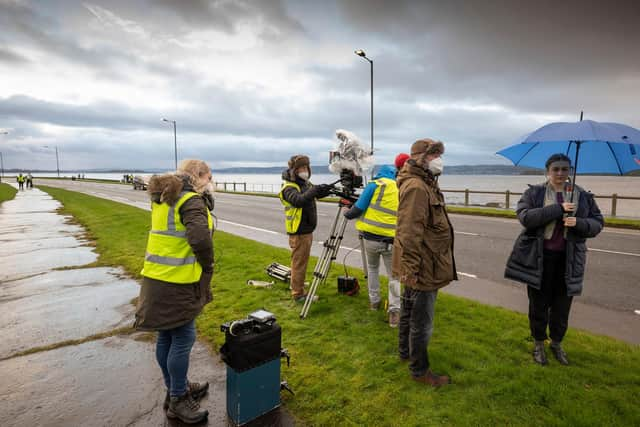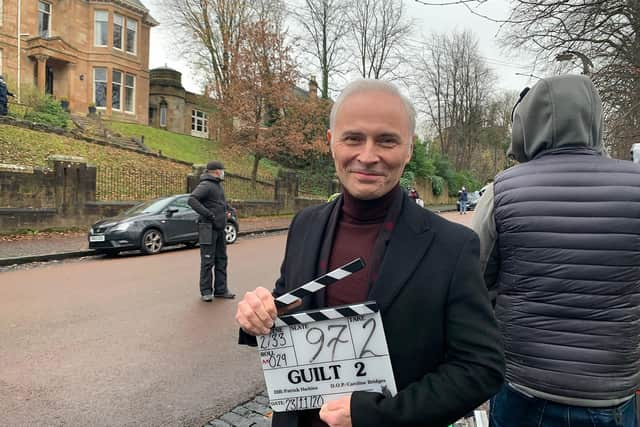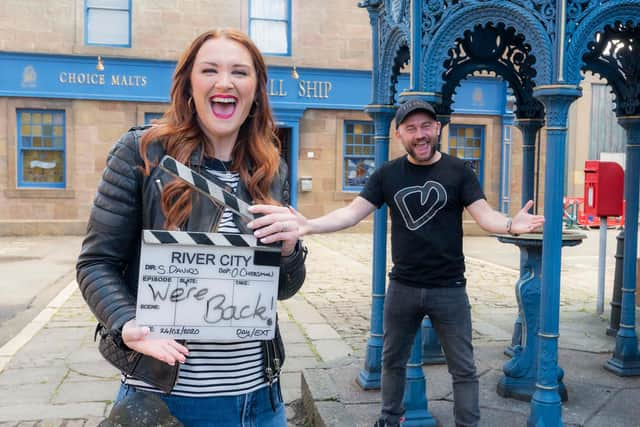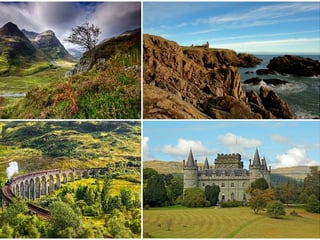Scotland's film and TV productions need to keep shooting – Brian Ferguson


I had naively assumed that the return of filming of TV and film productions, weeks after visitor attractions had been given the green light to open, would be followed by theatres, concert venues and comey clubs, as long as they had cut their capacities and were enforcing social distancing rules.
This was hopelessly optimistic given that the vast majority of performing arts venues in mainland Scotland have never reopened and still look months away from being able to do so given the latest lockdown restrictions.
Advertisement
Hide AdAdvertisement
Hide AdScottish culture has been largely spared the devastating impact on venues and companies in England who were given the green light to reopen in the second half of 2020 but were forced to bring the curtain back down again before Christmas as a result of the heightened restrictions.


Organisers of drive-in events, which were being actively encouraged by the Scottish government but had the plug suddenly pulled on them in the autumn, are an obvious exception.
The saving grace has been to allow TV and film production to resume in the summer and then continue over the autumn and winter as restrictions on other industries such as tourism, retail and hospitality gradually tightened.
And, crucially, that is being allowed to continue in the early part of 2021, unlike the initial lengthy lockdown period.


There has already been filming for a second series of the hit drama series Guilt, a new thriller partly focusing on the Trident nuclear deterrent in Scotland, a marine homicide drama adapted from a hit Radio 4 series following Scandinavian detective Annika Strandhed, Netflix feature A Castle For Christmas, and The Origin, a Stone Age horror movie shot around Gairloch.
The open-for-business message from bodies like Screen Scotland has undoubtedly helped attract forthcoming productions like the Amazon series The Rig, which is using Jason Connery’s new studio in Leith, and Tetris, the new movie on the video game designer Henk Rogers, being made by Aberdeenshire director Jon S Baird, who is best known for Filth and Stan & Ollie.
Although the Scottish government is urging productions to ensure only the “minimum number of people” are on set, it has rightly placed film and TV in the same bracket as construction and manufacturing.
Any arguments about how “essential” film and TV are were surely put to bed within weeks of the original lockdown last spring. They have kept millions of us entertained every night.
Advertisement
Hide AdAdvertisement
Hide AdThe many Scottish productions are providing crucial work to performers, writers, directors and crew at a time when working on live events is looking like a non-starter until well into the spring or summer.
For the organisers of the latter, such as theatre companies and festivals like Edinburgh’s Hogmanay and Celtic Connections, it has helped their events be completely reimagined and also provide work for artists, creative teams and technicians.
It may seem a bleak start to the year, but 2021 would be looking a lot darker if cameras were ordered to be put down again. In fact, it seems more essential than ever that they keep rolling.
A message from the Editor:
Thank you for reading this article. We're more reliant on your support than ever as the shift in consumer habits brought about by Coronavirus impacts our advertisers.
If you haven't already, please consider supporting our trusted, fact-checked journalism by taking out a digital subscription.
Joy Yates
Editorial Director
Comments
Want to join the conversation? Please or to comment on this article.
